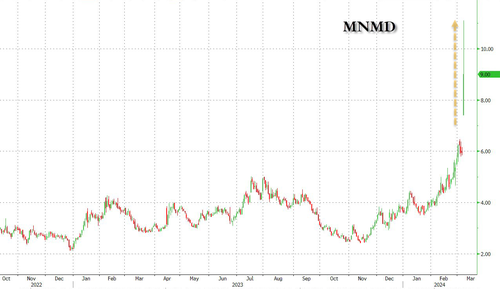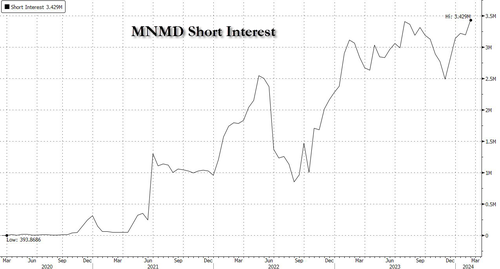Part 2 in the series “From pioneer to fallen giant: How Hewlett Packard’s long list of failed acquisitions cost its reputation.”
Read Part 1 titled “Billion dollar bungles” here.
The Autonomy Deal – Part 1: Leo Apotheker’s Downfall
In the first article in this series, we looked at how in the first decade of the 21st century, Hewlett Packard lurched from one disastrous acquisition to another. By 2011 it was clear that the Compaq, EDS and Palm deals had all failed spectacularly, yet HP’s desire to buy up companies and try to integrate them had not been diminished.
Indeed, the next acquisition move, which we’ll look at in this article, took place just after the death knell had been sounded on the Palm deal. And it proved to be the most controversial of all.
As covered in the last article, in August 2011, Leo Apotheker, CEO of HP, killed off the company’s extraordinarily ill-judged foray into mobile tablets by halting the sale of the HP TouchPad mere weeks after its launch.
It was a microcosm of the challenges Apotheker had faced since he had become CEO in November 2010. Financial underperformance was now endemic. By July 2011, HP had missed quarterly results for four quarters in a row.
The solution, he thought, would be to enact a new and bold strategy. His predecessor, Mark Hurd, had championed the Palm deal and broadening HP’s hardware offer. But the results of that strategy were clearly so disastrous in the eyes of Apotheker that he decided to run in the opposite direction. His strategy would focus on making HP a much bigger player in the world of software.
The logic was that software was a much higher margin business with greater growth potential than HP’s traditional focus of printers and personal computers. Apotheker reasoned that an acquisition would be necessary to jumpstart his new strategy.
His gaze fixed upon a British startup called Autonomy, which specialized in analysis of large scale unstructured big data.
By 2011, Autonomy was clearly a success story, with over 2,500 employees and around a billion dollars in cash. Its core product was the Intelligent Data Operating Layer (IDOL). IDOL allowed the search and processing of text taken from a variety of sources, including audio files, video files, email messages and social media content. This allowed businesses to derive valuable insights from data that was previously difficult or impossible to analyze.
It was this innovative tech that Apotheker wanted to acquire and deploy within HP’s offering. He saw significant potential synergies between Autonomy’s data search and analysis capabilities and the data services that already existed in HP.
By summer 2011, Apotheker was keen to make an offer for purchasing Autonomy. He was willing to pay an extraordinarily high premium of 70% above Autonomy’s market share price to get the deal over the line. This obviously represented a very good offer for Autonomy, which the company’s founder and CEO, Dr Mike Lynch, decided to accept.
True to form, HP’s senior executives couldn’t reach an agreement about the deal. A number of Apotheker’s immediate colleagues, including the CFO Cathie Lesjak, opposed his plans. Lesjak later admitted that she and Apotheker were “at war” in this period.
But Apotheker kept pushing the Autonomy deal. His battles with Lesjak came to a head at a board meeting on 16 August 2011. Lesjak criticised Apotheker’s plan in front of the board without any warning. She even emailed HP’s Chairman, Ray Lane, in the middle of Apotheker’s presentation about the Autonomy acquisition, to say that Apotheker was a “dead man walking…“. It was a boardroom drive-by shooting.
Nevertheless, two days later, HP announced its offer to acquire Autonomy for a price of $11.7bn.
It was at the point of this announcement that HP made its first of many grave errors with Autonomy. The announcement was coupled with a raft of bad news: HP had missed its financial targets results for that quarter, HP had to lower its financial projections for future quarters, and HP was killing the Palm acquisition. To cap it off, HP announced a strategic review of core components of its hardware business, the lion’s share of its revenues.
HP’s shareholders were incredulous. The combination of the latest terrible set of results with the suggestion that HP was withdrawing from hardware, sent the share price tumbling. Instead of focusing on the good news of acquiring Autonomy, it made a cardinal sin of corporate communication by firing out multiple updates in one go to an unprepared market.
Given the uncertainty HP ended up communicated, shareholders shrunk from the Autonomy deal. They simply didn’t have the risk appetite and worked furiously to kill off the Autonomy deal, arguing it was far too expensive a move.
But Apotheker was not to be stopped. He continued to argue that the synergies were significant; the opportunity for HP to deploy Autonomy’s IDOL product were massive.
Ultimately, the deal couldn’t be ended. But Leo Apotheker’s time as HP CEO was. In late September, just over a month after the Autonomy deal was announced, Apotheker was fired. It was no great surprise: HP’s stock had fallen 50% during his tenure.
A close ally and CTO, Shane Robinson, was also fired. These were the two primary architects of the Autonomy deal, the people with the vision to pivot HP’s business and thoroughly integrate IDOL into its service offering. They were now gone.
Meg Whitman took over as CEO. On the day of her appointment, HP’s board said it would not change its strategy to focus more on services than making computers. In other words, it had rejected Apotheker’s main strategic pillar and announced a U-turn. From Hurd, to Apotheker, to Whitman, HP’s strategic focus had gone from hardware to software and back to hardware.
As Whitman geared up for taking over a deeply troubled company, one awkward question hung in the air: what to do with Autonomy?
In the space of a few weeks, it had gone from critical component of HP’s future success to a massive inconvenience and a weight round the new leadership’s necks.
For Autonomy’s people, this was obviously bad news. The grand vision for integrating Autonomy was in the mind of Apotheker – but he was gone, and so was the plan for the business.
Whitman was utterly disinterested in the future of Autonomy. She was busy desperately trying to fight fires ripping across the HP business. As Forbes put it in the spring of 2012, “despite a heritage based on innovation, the company is now mired in low-growth PC markets with little differentiation. Investors have dumped the stock, dropping company value some 60% over two years”.
No care or attention was paid to Autonomy. The entrepreneurial spirit of the company was quickly crushed as it lost its independence to HP’s software division. It was a very similar tale to EDS’ integration into HP. Autonomy’s people left in droves as the winning startup culture that had propelled it for years was disappeared by HP’s sapping bureaucracy. By autumn 2012, just a year post-acquisition, 25% of Autonomy staffers had walked out.
What’s more, HP’s sales commission model incentivized the HP sales team to sell products that competed with Autonomy software. Sales representatives didn’t receive any commission for Autonomy products. They would often discount Autonomy software in packaged deals to boost their sales of other HP products, so Autonomy’s bottom line suffered.
In May 2012, Meg Whitman decided to fire Dr Mike Lynch, who was still Autonomy’s figurehead. The reasons advanced were disappointing results and a culture clash. Dr Lynch’s dismissal was the symbolic end for any hopes of Autonomy being integrated properly into HP.
That summer might have seen the end of the HP-Autonomy deal story. In the event, the episode would run for many years after. It began with a claim of fraud leveled at Dr Lynch amid a massive write-down of Autonomy by HP. Dr Lynch strenuously denied the claim and more than a decade of litigation has followed.
In the next article in this series, we’ll look into the events that ran up to HP’s claim, examine the flimsy evidence it cobbled together to point to a fraud, look into the figures that even HP’s own team thought non-sensical, and HP’s attempts to re-write history.









